Article last updated on January 4, 2022
The question, “What is the cause of procrastination?” or “What causes me to procrastinate?” is a fantastic question to ask because that means you want to know the root of the problem.
Procrastination is a common problem that affects millions of people around the world.
Like those millions of people, you too will probably find excuses not to carry out your ideas or plans. And you may be stuck in this vicious cycle for years, but I can say with confidence that procrastination can be eliminated.
If I could offer you the fastest answer on what causes procrastination and how to get rid of it, it would be to ask yourself…
What feeling do I avoid admitting to myself, and how would I feel if I accomplished what I avoided doing?
Take a step back and think about this question.
I understand this requires introspection, honesty, internal and external self awareness, but if you clearly know the answer, the procrastination will quickly dissipate.
Keep in mind, this article will go a lot deeper into main causes of procrastination and how to overcome it.

There are many reasons why individuals put things off, but you will learn about the psychological mechanism underlying procrastination habits in this blog post.
In addition, you will discover how this information may help you understand why you procrastinate and how you can utilize this information to conquer your procrastination successfully.
I am aware this is a lengthy article, but it is because procrastination is a multifaceted issue that affects a wide range of people for a variety of reasons.
If this scares you, don’t allow it to stop you from skimming this post, especially the list of reasons why people don’t get things done and focus on what is most important to you.
For those of you who just want an overview of this article instead of reading it in full, just see the next section.
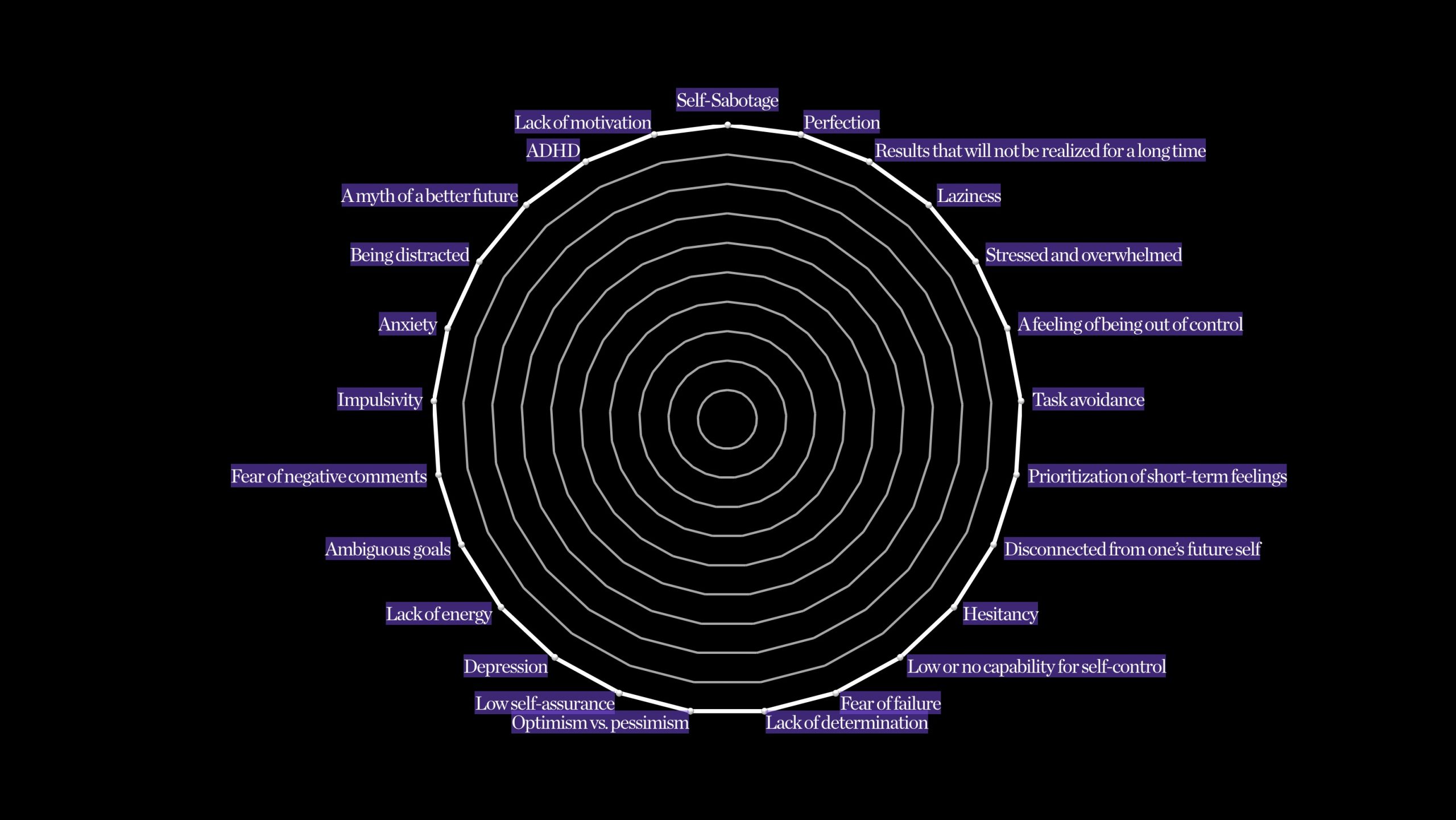
Overview

When it comes to our procrastination, the most important psychological process is as follows:
- We rely mostly on our self-control when we need to get anything accomplished.
- Self-control is typically supported by motivation, which helps us complete tasks on time.
- When we feel anxious or afraid of failing, we’ll be paralyzed to take action.
- Aside from weariness and long-term goals, we may also encounter other obstacles, such as a lack of self-control and drive.
- Until we reach a moment when the balance between demotivating and hindering factors and our self-control and motivation turns in our favor, procrastination is inevitable.
As far as particular causes of procrastination are concerned, the following are among the most common:
- Self Sabotage
- Perfectionism
- Anxiety
- Laziness
- Hesitancy
- Low Self-Control
- Fear of Failure
- ADHD
- Impulsivity
- Lack of motivation
By identifying the causes of your procrastination and figuring out how it’s keeping you from achieving your goals, you can develop an anti-procrastination strategy that will help you overcome your problems once and for all.
What Is Procrastination?
Procrastination means delaying something that needs to be done. This happens because we don’t want to start something new.
We are used to doing things in a certain way and delaying things that we need to do will create a downward spiral of non action.

If you postpone something without thinking about it, then you are probably guilty of procrastination.
For example, if you’re supposed to be working on an important task but instead spend your time surfing the web, you’re procrastinating.
As evidenced by the fact that procrastination is associated with lower grades in school and lower wages in the workplace, procrastination has a negative impact on people’s ability to achieve their goals.
Stress and poor physical and mental health are also connected to procrastination.
Why Do People Procrastinate?
Procrastination is far more complicated than simply a matter of a person’s willpower.
It is common for us to rely on our self-discipline when we are presented with a difficult decision or a complex task.
But the reality there are multiple causes that make people procrastinate.

It is also possible that our self-control is strengthened by the belief that we will receive a reward for our efforts, which may help us to complete our tasks in a timely manner.
In contrast to our drive, there are a number of demotivating elements that could cause us to put off our tasks more often.
We might wait needlessly due to worry, fear of failing, and other negative emotions, as well as being given a difficult task that we find unpleasant.
It’s also possible that we’re more prone to procrastination because of a variety of issues, including a lack of self-control and drive.
As an example, tiredness from a long day of work might make it more difficult for us to maintain self-control in the evening.
Furthermore, if we have a big-time gap between our completion of a task and when we obtain our reward for doing so, the motivating effect of this incentive will be considerably diminished because of this.
Demotivating influences are not a problem as long as our self-control and drive overcome the negative impact they have on our ability to complete our tasks in a timely manner.
The problem is that when the negative effects are outweighed by our self-control and motivation, we either procrastinate forever or procrastinate until the tide turns in our favor.
There are a variety of reasons why we put things off, but the most common are variables like fatigue and far future rewards that keep us from getting things done.
As a result, procrastination frequently results in a discrepancy between our intentions and our actual actions, resulting in a lack of self-regulation and an inability to complete tasks that we know we should be completing.
In certain cases, procrastination might be justified by a desire for excitement in otherwise dull tasks.
People postpone for a variety of reasons, but the method outlined above is the most typical.
Every individual has a different amount of possible causes for procrastination.
Here’s an image with an example what that looks like:
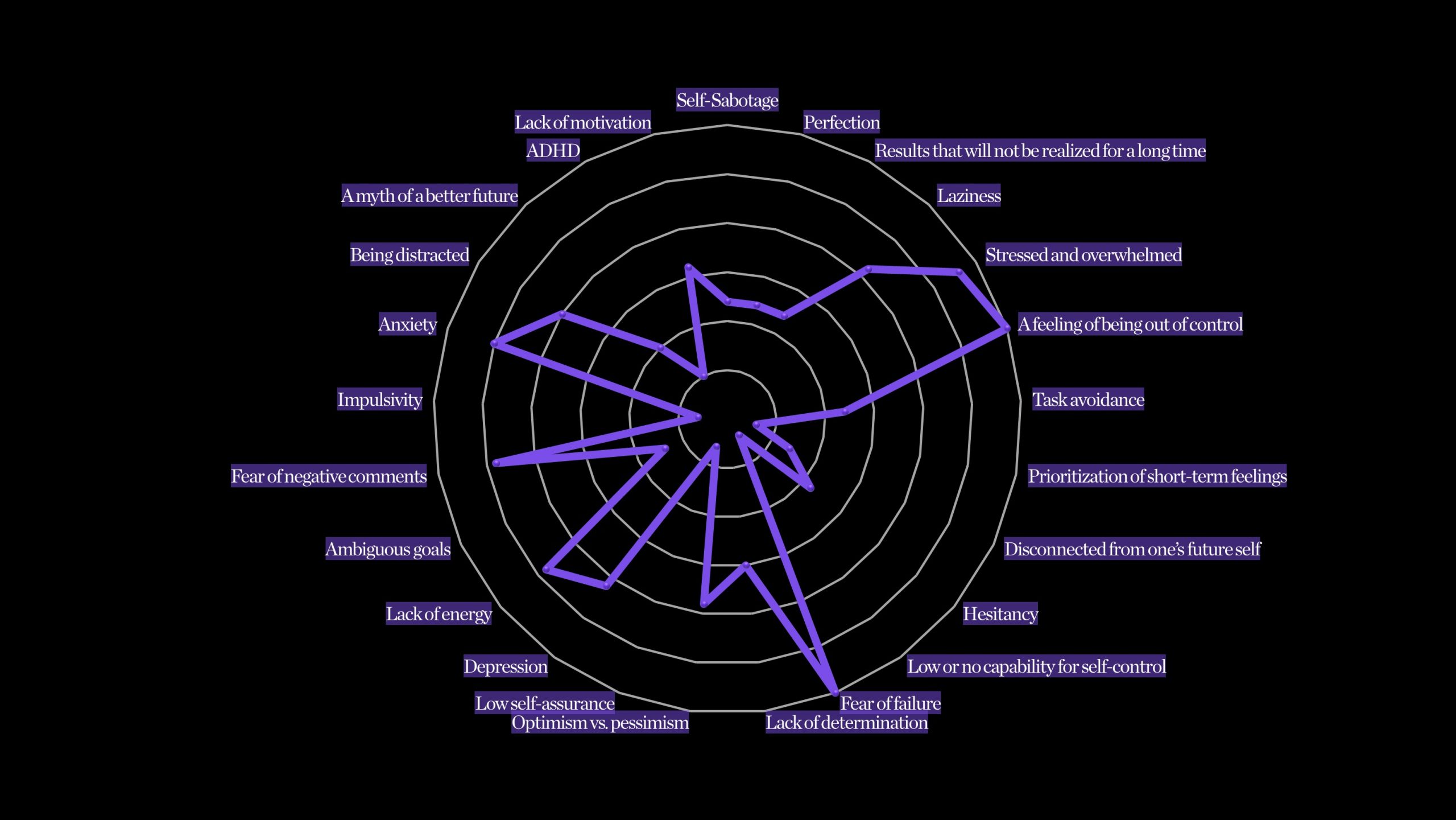
Causes Of Procrastination
There can be a lot of causes for procrastination, but I have laid out the main ones I have noticed that almost everyone has.
Have a look at this list and see if any of these factors apply to you.
It’s critical to identify the root causes of your procrastination in order to overcome it, so be honest and thoughtful with yourself when you do this.
You may not find all of these reasons relevant to your circumstance, so feel free to scan through the list and focus on the ones that you believe are most relevant to your own scenario.
Self-sabotage

If you have an inclination to engage in self-defeating habits, then you may have self-sabotage behaviors.
I have even created a course on how to stop self-sabotage.
People with this problem believe they don’t deserve a better life.
They can put off applying for a new job even if they know it would provide a fantastic chance for progress.
People engage in self-sabotage for a variety of reasons. Those who defer for this reason tend to engage in other related behaviors, such as avoiding people who treat them well.
They also avoid taking risks because they are dealing with difficult emotions and don’t want to fail or be rejected.
When someone engages in self-sabotaging behavior, he or she does not see the value in change.
The person is stuck in his or her current situation and will continue to do so unless there is a compelling reason to make a change.
The good news is that most people are able to overcome their self-sabotaging tendencies.
However, some people find it difficult to move beyond their negative thoughts and beliefs about themselves.
Perfectionism

There are several ways in which perfectionism may contribute to procrastination, such as instilling fear of making a mistake, or instilling fear of releasing a product with any defects, which leads to endless reworking.
There are a number of reasons why someone might put off writing a book, such as a desire to make sure that each sentence is error-free before beginning.
As with rewriting a book, someone who has finished it may not want to show it to others because they want to make sure it is perfect before they send it out.
A desire to produce and publish high-quality work is understandable, but perfectionists tend to procrastinate since they have a seemingly good explanation for delaying their task.
The problem with this thinking is that it does not take into account the fact that there are many things that can go wrong during the course of a project and that these problems cannot be predicted.
Note that procrastination is not always the result of perfectionism, and that in certain cases a person’s perfectionism may actually reduce their tendency to procrastinate by motivating them to complete their tasks quickly.
The problem arises simply when people’s fear of their work being imperfect causes them to put things off because they’re too anxious about doing it right the first time.
This anxiety is often caused by an irrational belief that something needs to be done perfectly and that anything less than perfection is unacceptable.
In other words, perfectionism can cause procrastination if you don’t allow yourself to make mistakes.
If you don’t feel comfortable with the idea of making mistakes, you’ll probably find it difficult to complete tasks on time since you won’t be able to relax until everything is just so.
You may also find it hard to accept criticism from others since you’re afraid that your work will be rejected if it doesn’t meet everyone’s expectations.
Results that will not be realized for a long time

Since individuals tend to devalue the worth of future events, they typically procrastinate on activities that are connected with outcomes (e.g., penalties or rewards) that they will only experience after finishing the activity.
An excellent grade on a test is easier to overlook when it is weeks away than a few days before the exam. This is why so many people wait until the last minute to do critical activities.
It is therefore common to see individuals show present bias when they choose to participate in activities that reward them immediately, rather than those that lead to long-term benefits.
The relationship between the time it takes to obtain a reward and the perceived value of that benefit is often uneven.
Essentially, this means that the further in the future a reward is, the less time it is perceived to have.
We value rewards differently depending on how long it will take us to acquire them.
For example, rewards that we can receive in a week are far more valuable than those we can earn in a year or more.
The difference between obtaining a reward in a year and two years is less pronounced than the difference between receiving a reward in a day and a year.
This means that people have an increased tendency to prefer immediate rewards over delayed ones.
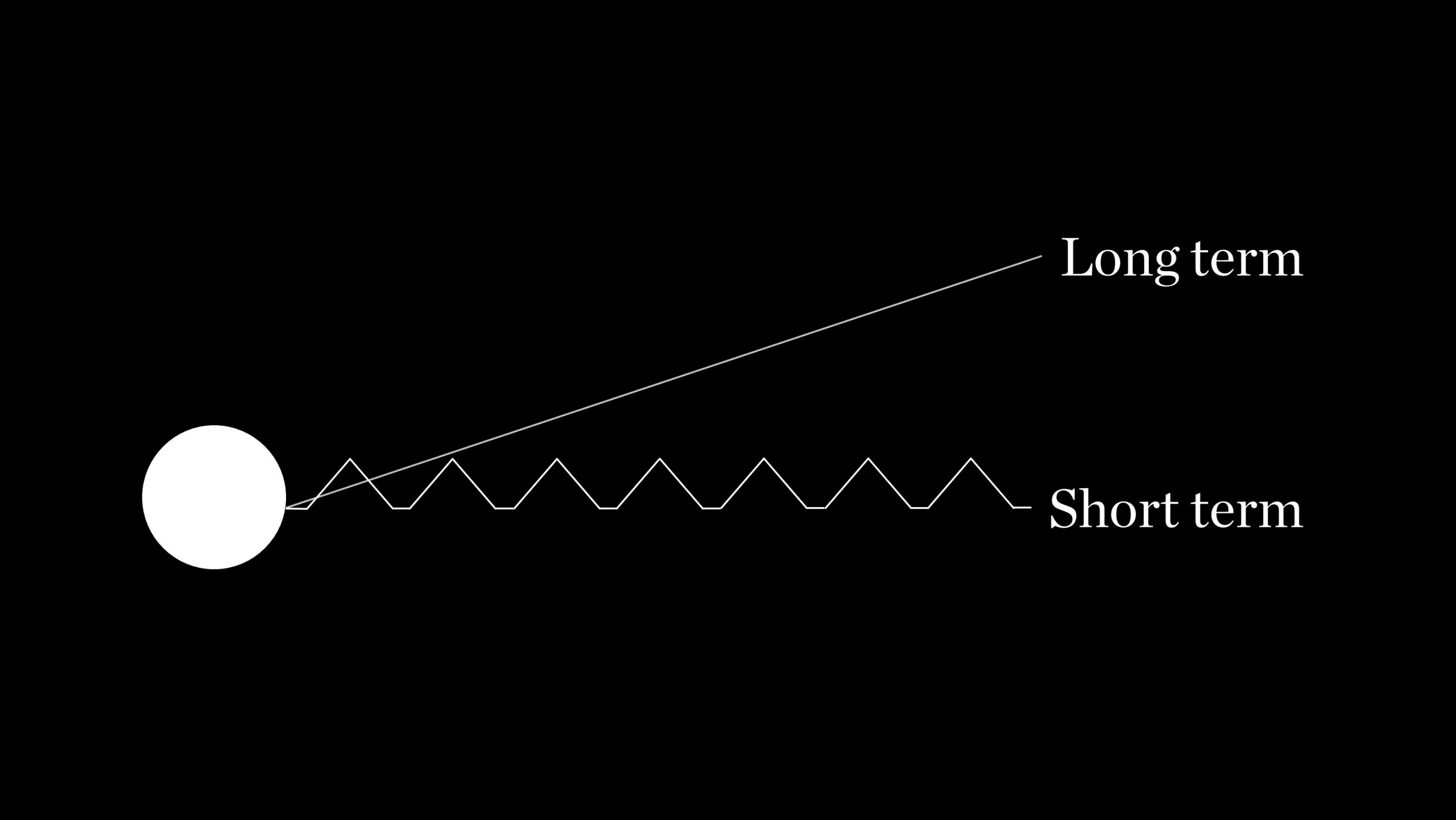
In fact, the longer the delay between the receipt of a reward and the event that triggers it, the greater the chance that the individual will lose interest in the reward.
One way to think about the relationship between time and value is to imagine that there is a “time clock” inside our brains that tracks the passage of time.
When we think about something that is very close by, such as today, the clock runs quickly because we want to do whatever we need to do today.
However, when we think about something further away, like tomorrow, the clock slows down so that we don’t waste time doing things that won’t happen until another day.
The same thing happens with rewards.
When you think about a reward that is closer to you, your brain wants to spend its energy acquiring it right now.
When you think about a reward further away, your brain has more time to devote to other activities.
So, if you’re thinking about a reward that’s going to be available later on today, your brain is going to work extra hard to make sure that you get it.
On the other hand, if you’re thinking of a reward that’s going to be available next month, your brain isn’t going to put much effort into getting it.
It just doesn’t matter as much to you.
You’ll still want to get it eventually, but it’s not going to consume all of your mental resources.
This is why people tend to be more interested in immediate rewards than in delayed ones.
Laziness

If a person is lazy, they may procrastinate because they lack motivation.
For example, someone can delay cleaning the dishes because they simply don’t want to get up and do it.
But keep in mind that, in many cases, procrastination is actually caused by worry or a fear of failure, and individuals think that their laziness is to blame.
It is important to remember that laziness and lack of motivation appear to be the same problem, but they are distinct.
Motivation is something that you must generate yourself, while laziness is an inability to act on your own volition.
When we say “lazy”, we mean that there is no desire for action at all, not even a willingness to try.
This is why laziness is often confused with apathy.
Apathy is a lack of interest or motivation, whereas laziness is a complete absence of willpower.
It’s like saying that you’re too tired to go out tonight, when really what you mean is that you have no energy left to get up from your bed and go out.
The difference between laziness and apathy is subtle, but it’s very important to understand this distinction if you want to overcome procrastination.
Because if you feel that you’re just too lazy to get off your butt and start doing things, then you’ll probably never finish anything.
You need to realize that laziness is not a character flaw; it’s a symptom of a deeper issue.
And the only way to fix it is to address the root cause.
Stressed and overwhelmed

It is common for people to delay because they are overwhelmed by the number of things they must complete.
For example, a single difficult task with a huge scope can lead to negative feelings of overwhelm, as can several smaller activities that pile up.
You may simply ignore the tasks at hand, or you may try to complete them but become paralyzed before they are completed.
As an example, if you have to clean up your entire house, you can be put off by the idea that it would take so long and include so many different aspects, and hence avoid getting started on it at all.
The problem here is not just that you will never finish cleaning up your house; it’s also that you won’t enjoy doing it either.
You can try to force yourself into action, but this often leads to more stress and anxiety than if you had just let go of the idea of finishing everything in one day.
If you feel like you are always behind schedule, then perhaps you should start prioritizing your tasks.
Prioritize what matters most first and foremost, and focus on those tasks until they are done. Then move onto the next highest priority, and repeat.
This way, you can still accomplish a lot in a short amount of time without feeling paralyzed.
A feeling of being out of control
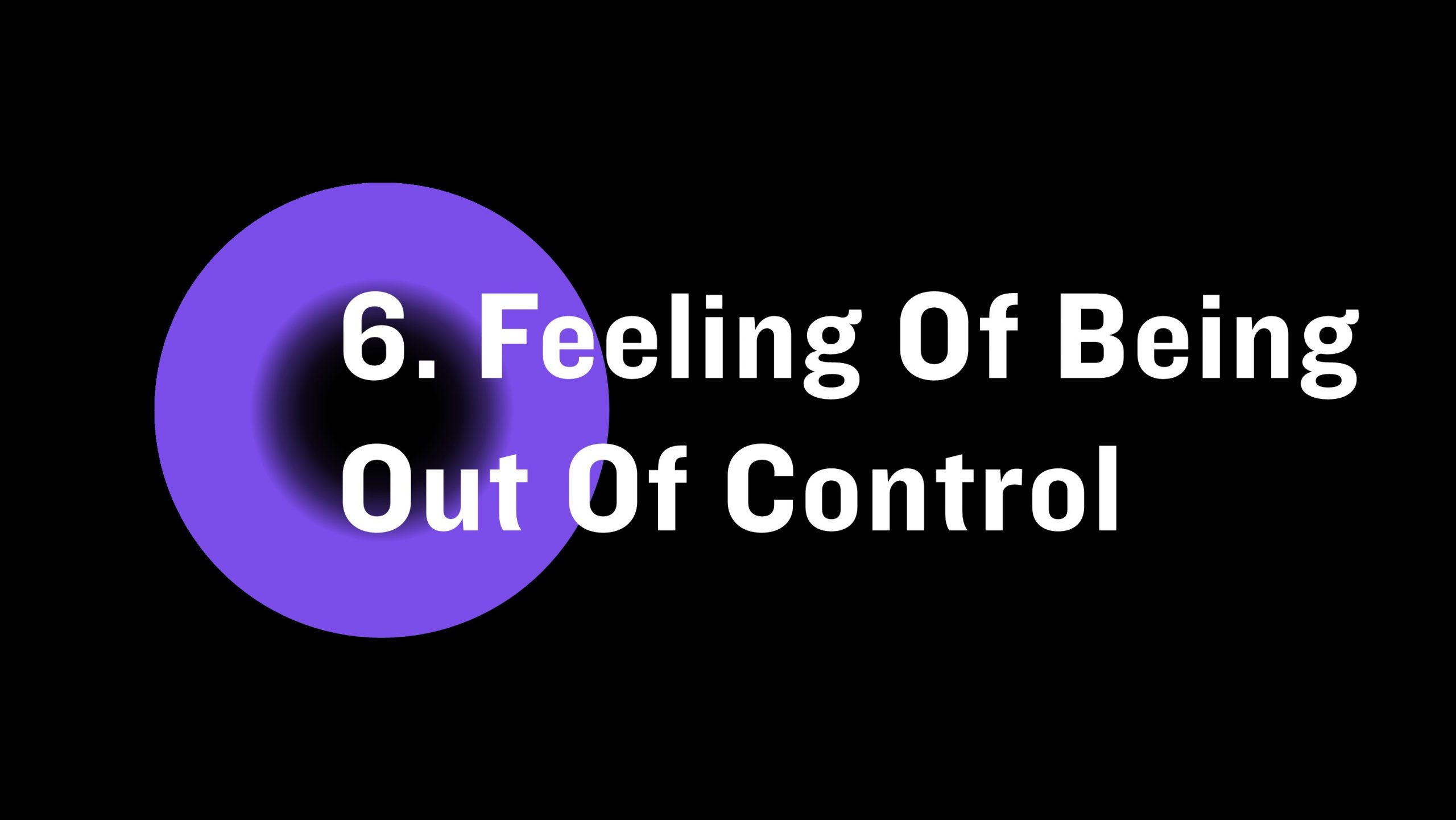
Procrastination might be the result of a person’s belief that he or she has little control over the course of events in their life.
There are several reasons why people put off starting a project at work, such as a lack of confidence in their boss’s ability to appreciate their efforts.
However, some people are more likely than others to experience a general lack of control due to a perceived lack of influence.
The extent to which people believe they have control over events in their lives is called the locus of control.
In terms of internality and externality, the locus of control may be classified as follows:
- People that are inwardly focused feel that they have a great deal of power and influence in their lives.
- People who are more externally oriented believe that they have little control over their lives and are more susceptible to the influence of others and their surroundings.
People who are inwardly focused are more likely to start and finish projects on time, whereas people who are externally focused are more likely to postpone, perform poorly, and feel anxious.
What’s more, those with an external locus of control tend to procrastinate less than those with an internal locus of control.
This is because they do not see themselves as powerless and, therefore, do not fear failure.
The opposite is also true.
Those with a strong sense of personal power are more likely to be goal-oriented and take action.
They have a stronger belief in their ability to succeed and are motivated by the desire to achieve something meaningful.
Task avoidance
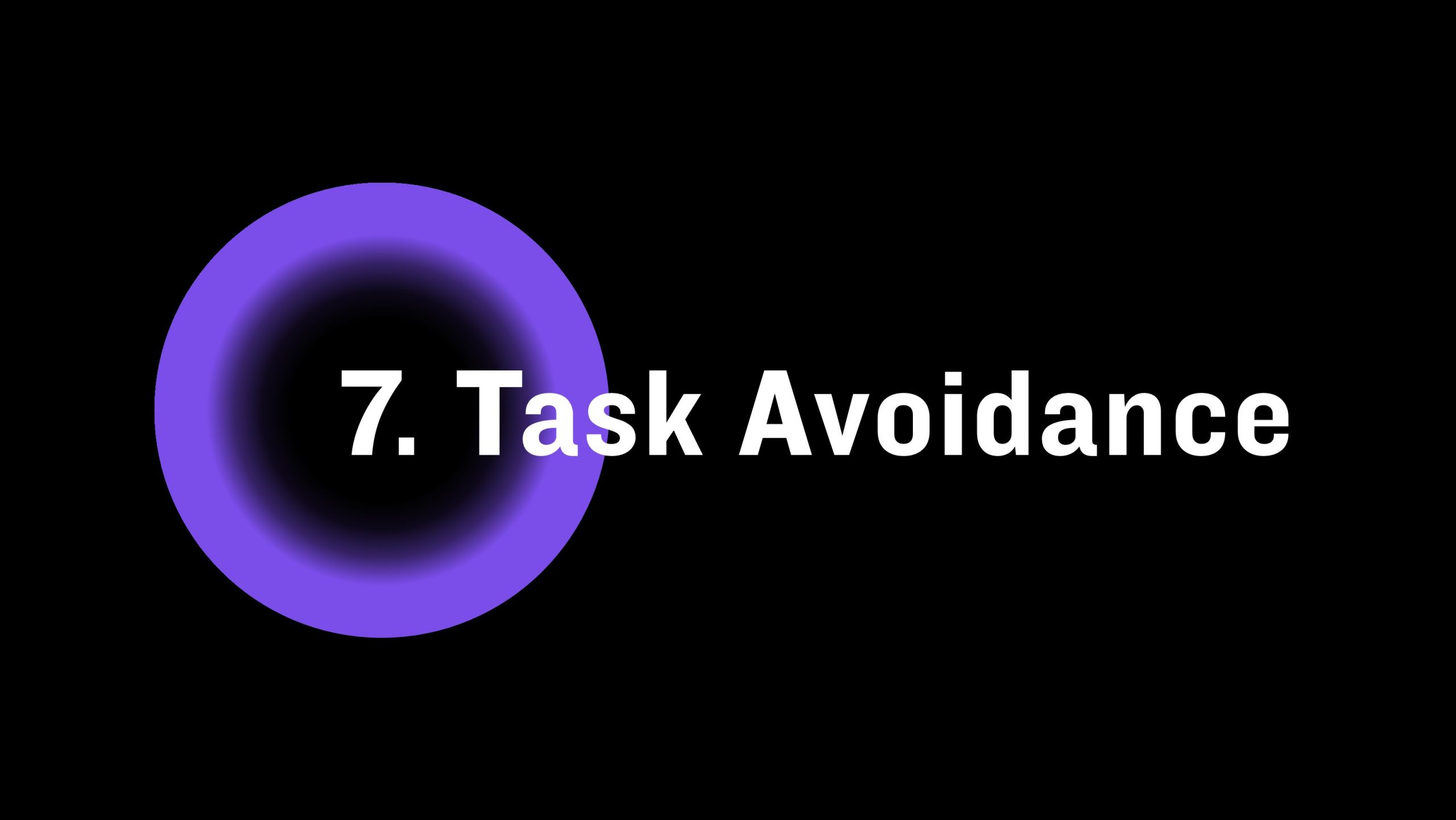
In many cases, procrastination is caused by people’s dislike of the work they must complete.
If you need to make contact with someone you despise but do not want to, you might put it off instead of just doing it because you do not want to face the consequences.
As a general rule, the less enjoyable a task is, the more likely individuals are to want to avoid it and, hence, the more likely they are to delay it.
There are numerous reasons that might drive a person to procrastinate on a task, so keep this in mind.
Procrastination can occur for a variety of reasons, such as a person finding the work tedious, uninteresting, or unpleasant, or believing that there is a mismatch between the complexity of the activity and his or her own abilities.
As long as the individual has an interest in the outcome of the task, he or she will be willing and able performing it.
Procrastinators often fail to see that procrastinating does nothing but make them feel worse about themselves.
They may also have difficulty seeing how they are affecting others around them.
That’s why task avoidance, or task aversion, is one of the most common forms of procrastination.
Prioritization of short-term feelings
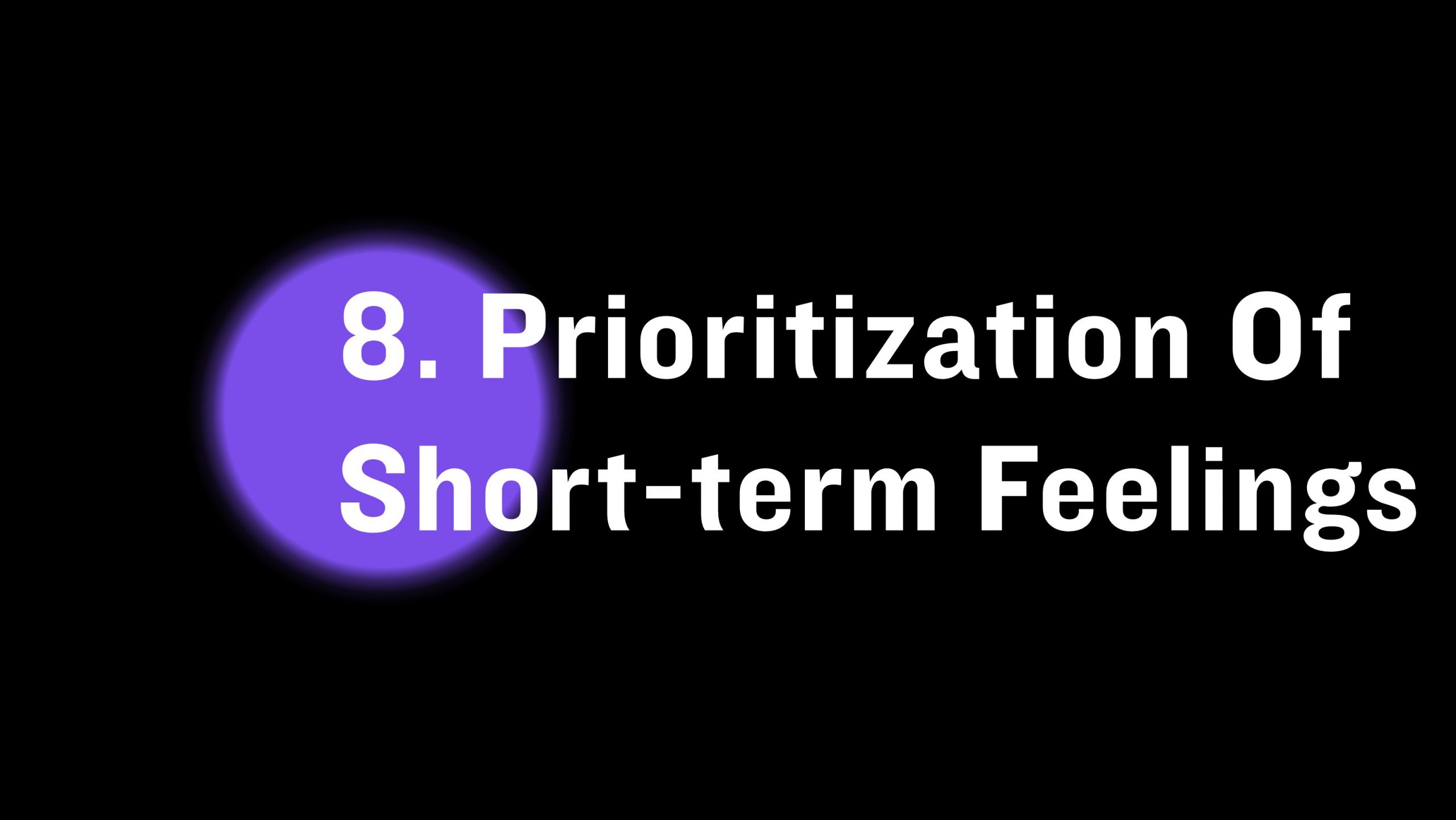
“Short-term feeling” refers to the practice of prioritizing one’s current sentiments over long-term objectives and doing activities that will make them feel better in the short term, even if this means sacrificing long-term progress.
For example, a student may procrastinate starting a project by squandering hours on hobbies like being on social media and playing video games, because doing so is more enjoyable in the short term than concentrating on the subject at hand.
Hedonistic delay is a type of procrastination that occurs when people give in to their desire for immediate gratification and engage in activities that are enjoyable in the short term rather than focusing on things that will benefit them in the long run.
Such conduct is linked to the pleasure principle, which describes our inclination to seek out rewarding pursuits while avoiding those that bring us pain.
When a person is unable to manage this natural and innate propensity, it becomes a severe problem since it drives them to pursue short-term happiness at the price of long-term performance and growth.
The problem with hedonism is that it can cause problems later on, such as addiction or depression.
It also leads to poor decision-making and bad procrastination habits.
This is why it is important to learn about yourself and to learn how to control your impulses, plus avoid indulging in pleasurable activities that you know could be harmful in the future.
Disconnected from one’s future self

It is common for people to procrastinate because they regard their future selves as being separate from their present selves, a condition called temporal disjunction.
When it comes to eating healthily, for example, some people may put it off because they believe that the adverse effects of their current diet would only become apparent in a few years, which they consider to be someone else’s responsibility (i.e., the problem of their future self).
As a result of this gap, people may delay in a variety of ways.
For example, if they assume that their future self will have to take care of all the deferred tasks or that there will be consequences if they do not complete these activities on time, then they may not worry about their present self, because their future self will have to take care of these unpleasant tasks.
In the same way, they may begin to believe that they do not have to make an effort today because their future self will do it.
As a result, they may feel less motivated to act now.
This disconnection between past and future selves can also affect other areas of life.
For example, if you are worried about your finances, you might think that your future self will take care of them, so why bother trying right now?

The good news is that once you start thinking about your future self, you can begin to make changes in your life that will improve your relationship with your future self.
The next time you find yourself procrastinating, stop and ask yourself: “What am I doing right now that benefits my future self?”
This is a great way to re-align yourself and see if you are moving in the right direction.
Hesitancy

As a result of hesitancy, people may delay important tasks. One of the most common reasons for this is when someone isn’t sure what to do, or when they are required to make an important choice before moving on with their overall plan of action.
A person might postpone starting a diet because they are undecided about which diet to use.
If you are having trouble deciding on a topic for your research paper, you may want to put it off until later.
Analysis paralysis or choice paralysis is a phenomenon that occurs when a person is unable to make a decision because they cannot stop over-analysing circumstances.
There are a number of practical considerations to keep in mind, such as:
- The more alternatives you have, the more difficult it will be for you to make a decision. It’s difficult to make a decision if you have a lot of alternatives that are quite comparable in terms of quality and value, especially if there isn’t one option that is clearly superior to the rest.
- The more significant the decision, the more difficult it will be to make. A large choice is often more difficult to make since it has a greater impact on your life, so you’re more likely to hesitate before making a minor decision than you are to make one.
Also, remember that every time you have to make a decision, you use up your mental resources, especially if you tend to procrastinate.
The more decisions you have to make in a short time, the less control you have over yourself, and the more inclined you are to postpone future decisions, at least until you can recharge your mental batteries.
If you feel you do not know enough to make a good decision, it makes sense to wait until you do.
It’s also possible to be more hesitant if you try too hard to avoid making any decision.
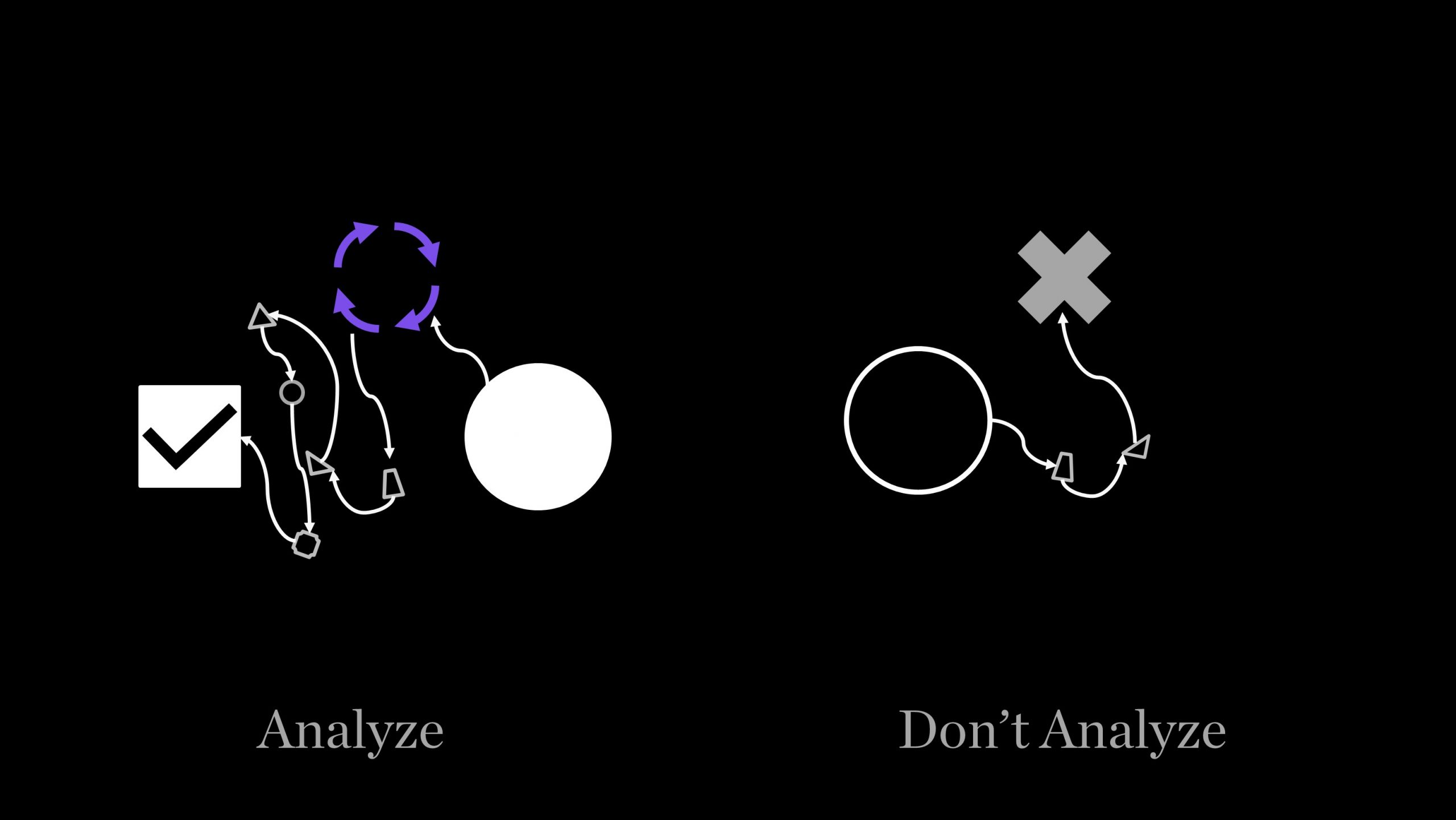
Avoiding to make any decision is also called “analysis avoidance,” and it happens when you try to avoid making a decision by not thinking about it.
This is why some people prefer to take things slow and deliberate rather than rush into things without knowing all the facts.
But we need to be very careful here, because it can lead to analysis paralysis.
There are two types of analysis paralysis…
Paralyzed by thinking of every aspect
When you are paralyzed by analysis, you tend to analyze every aspect of a problem.
This is the most common type of analysis paralysis, and it can be very destructive.
The best way to overcome this is to just get started on solving the problem. If you don’t know how to solve the problem, then figure out how to do so.
Don’t worry about what you don’t know until you have solved the problem.
Once you have done that, then go back and make sure that all your assumptions were correct.
Paralyzed by action
When you are paralyzed by action, you tend to do nothing.
You might think that you are being productive, but in reality, you are not.
It’s important to realize that there is a difference between productivity and effectiveness.
Productivity is simply doing things without regard to whether they are effective or not. Effectiveness is doing something well.
In order to overcome this type of paralysis, you need to take some time to reflect on your actions and determine if they are effective.
Finally, keep in mind that hesitancy is known as decisional procrastination since it entails delaying a decision.
Low or no capability for self-control

As a measure of a person’s ability to self-regulate their own conduct, self-control is a person’s ability to take action that is in their long-term best advantage.
It’s very common for someone who lacks self-control to spend hours on social media while assuring themselves that they’ll start working on their project in the next few minutes.
People who lack self-control are more prone to procrastination because of other difficulties, such as task aversion or fear of failure, than those who have self-control.
There are numerous instances when a lack of self-control might cause someone to participate in behaviors that are simple and accessible, even if they are not intrinsically desirable, instead of focusing on things that are more naturally appealing and require more effort.
Lack of self-control, for example, can cause people to use social media instead of working on their favorite project, even if they don’t gain much joy from doing so and even if they’d feel better if they were working on their preferred project.
Self-control is also important in order to avoid engaging in activities that could be harmful to one’s health.
In some cases, it may be difficult to determine whether someone has too little self-control or whether they simply do not care about what they’re doing.
For instance, there are many people who smoke despite knowing it is bad for them. However, there are others who know that they should stop but still smoke.
The point is that we cannot always tell whether a person lacks self-control or whether he just doesn’t care about his actions.
Fear of failure

Procrastination is common because people are afraid of failing at the things they need to do.
As a result, procrastination may be encouraged in numerous ways, such as by preventing the completion of tasks or by encouraging individuals to delay starting new ones.
For example, someone may be so concerned about their concept failing that they continue to work on it indefinitely, never releasing it to the public.
The more important a task is, the more likely someone is to procrastinate for fear of failure, which means that more important activities tend to be associated with higher levels of procrastination.
As a result, those with low self-esteem and low self-confidence are more prone to delays than those with high self-esteem and high self-confidence.
People who have a high level of self-doubt, and especially those who have negative, illogical views about their ability to succeed, have a greater dread of failure than others.
Furthermore, it should be noted that procrastination isn’t always caused by a fear of failure.
When people lack the confidence to take on a task they are afraid of failing at, they are more prone to procrastination.
It is also possible to use fear of failure as a motivational factor to prevent procrastination when people are certain that they can handle a given activity.
This is a good time to remember that while the fears of failure, perfectionism, and fear of negative feedback are all closely linked, they don’t all have to be present in order for a person to be affected by them.
In fact, some people are able to successfully deal with these fears without experiencing any negative consequences.
However, if you’re not one of those people, then it’s best to try your hardest to overcome the fears associated with procrastination.
You can do this by learning how to control your thoughts, feelings, and actions.

The way to do this is to learn how to stop thinking about the things you’re afraid of.
Here are three ways to overcome the fear of failure:
- Acceptance. Accepting something doesn’t mean you like it or agree with it. Instead, it means acknowledging that you can’t change what has happened, so instead of focusing on the past, focus on the future.
If you’ve been avoiding an important project because you’re worried about failing, then accept that you might fail.
But rather than dwelling on it, think about how you’ll react if you do fail. - Pay Attention to the Positive. When you start worrying about a situation, you tend to focus on all the negative aspects of it. You think that if there is something negative in your life, then everything else will be bad too. But this isn’t true at all!
If you can turn things around and see them as positive, then they are going to become more positive than before. This is because when you look for the positives, you are looking into the future and thinking, “what could happen?” When you are concerned about what might go wrong, you are focusing on the past and asking yourself, “What has already happened?”
So, by changing your mindset from one that focuses on the negative to one that focuses on the positive, you will find yourself feeling better and able to move forward in a more productive way.
It’s important to note that this is not about being happy all of the time or thinking positively 100% of the time. It’s about focusing on what you do want instead of what you don’t want.
- Replace Fear with Action. A lot of people spend their entire lives trying to avoid situations where they might fail. They try to find excuses to stay away from them.
However, there’s nothing wrong with facing your fears head-on. In fact, doing so can be incredibly empowering. It gives you the opportunity to prove to yourself that you can handle whatever comes up. And it also helps you develop new skills and abilities.
The more you face your fears, the better prepared you’ll be for the future.
Lack of determination
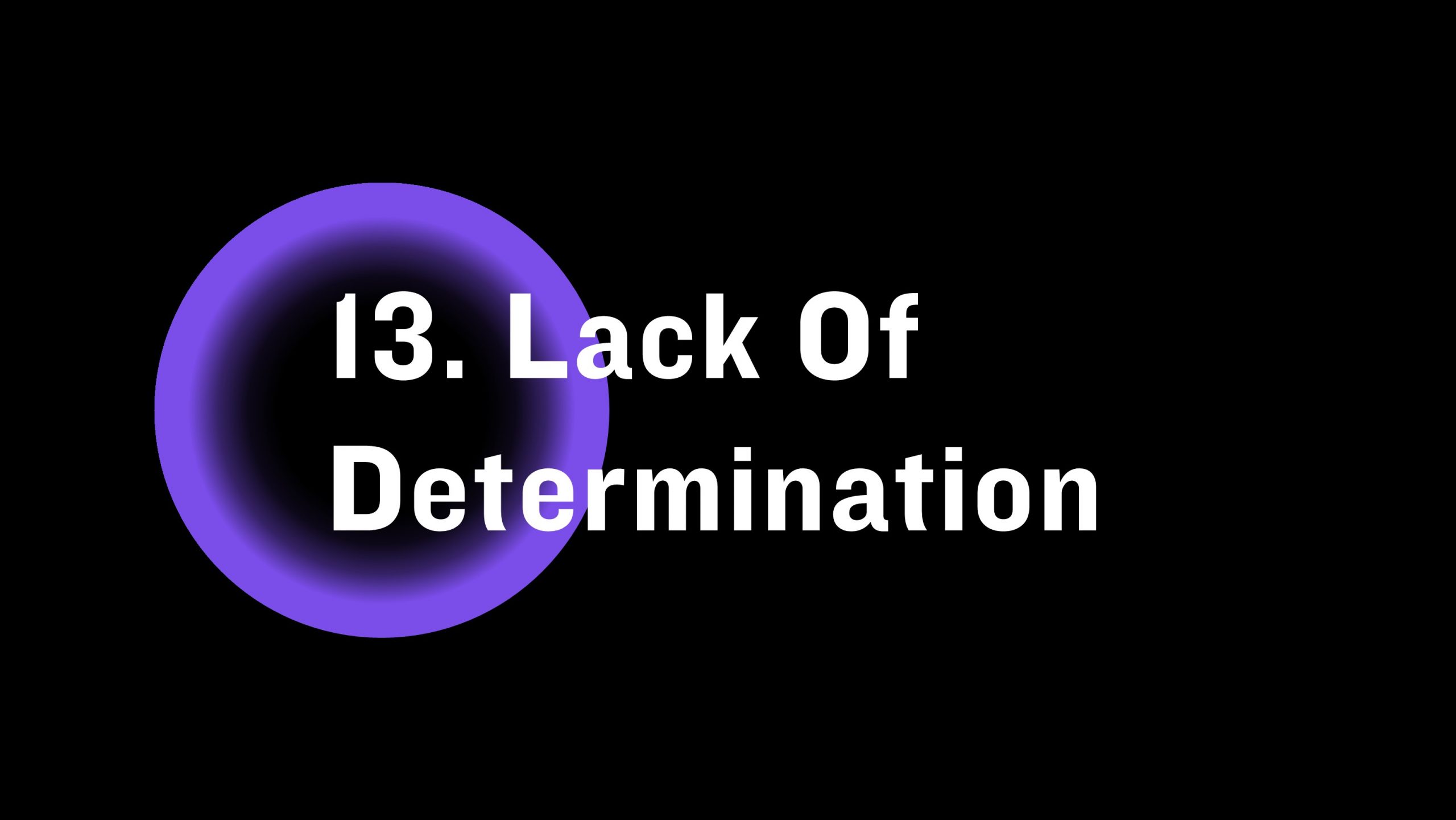
The capacity to retain a goal-driven attitude in the face of setbacks is what we mean when we talk about determination.
People who lack tenacity are more inclined to postpone, especially when it comes to completing things they’ve previously begun.
Some people may quit working on their favorite side project because they believe that they’ve reached a difficult and challenging point in the development process, for example.
Determination is important because it helps you persist with something even if it seems like it’s not going anywhere.
As long as you keep at it, you’ll eventually reach your goal.
If you’re determined, then you won’t be discouraged by setbacks or failures.
You’ll simply pick yourself up, dust off your hands, and continue moving forward.
In other words, determination means that you don’t give up easily.
Optimism vs. pessimism
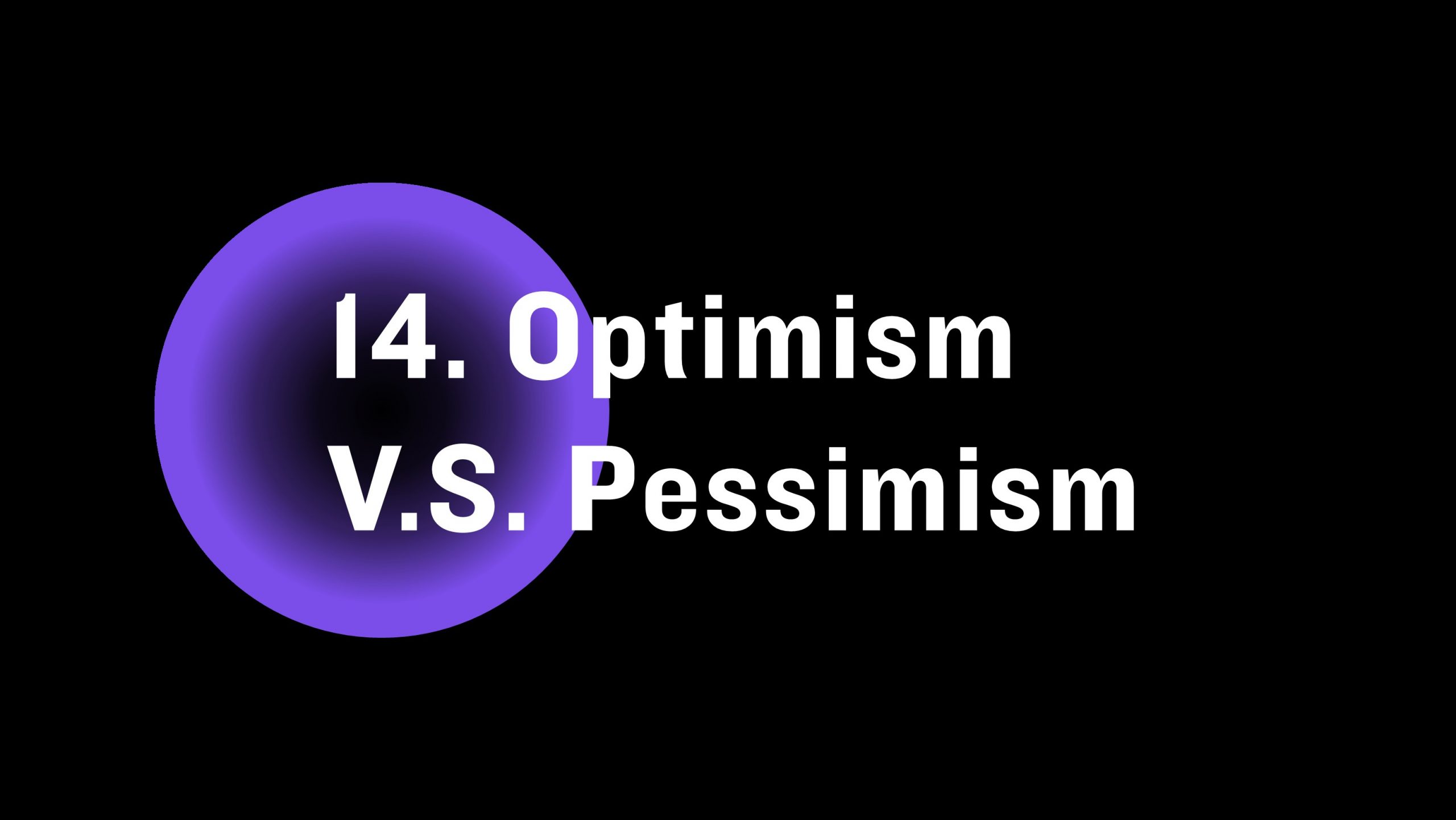
As it relates to determination, being a pessimistic or optimistic person will very likely give you the outcome you expect in the near future.
Overly optimistic people will think they have more time to complete the task later.
Students may postpone getting started on an assignment that is due a few weeks in the future.
The planning fallacy is a phenomenon that can drive both procrastinators and non-procrastinators to overestimate how long it will take to accomplish impending activities.
Procrastinators typically promise themselves that “things will be different next time” when they procrastinate on a single task.
Overly pessimistic people are also more likely to experience stress because of the feeling that something bad will happen.
This can lead to anxiety, which can cause procrastination.
As a result, people who are pessimists may be reluctant to get started because they feel that their efforts to finish a work are doomed to fail, so there’s no use in even trying.
Low self-assurance

One’s self-assurance is a measure of how confident one is in one’s own ability to carry out the tasks necessary to attain one’s abstract goals.
Procrastination can be exacerbated by low self-assurance.
A person could put off starting a project they don’t feel capable of doing because they believe that they will most likely fail to accomplish it.
It’s important to keep in mind that people’s self-assurance might vary widely depending on the area of their life they’re dealing with.
A person with high levels of academic self-assurance but low levels of social self-assurance could believe in their ability when it comes to academic activities but not when it comes to social ones.
It can also be applied to a certain activity or ability.
To get things done on time, you need to have a high level of self-assurance, which refers to your belief in your own abilities, particularly your capacity to self-regulate your own behavior.
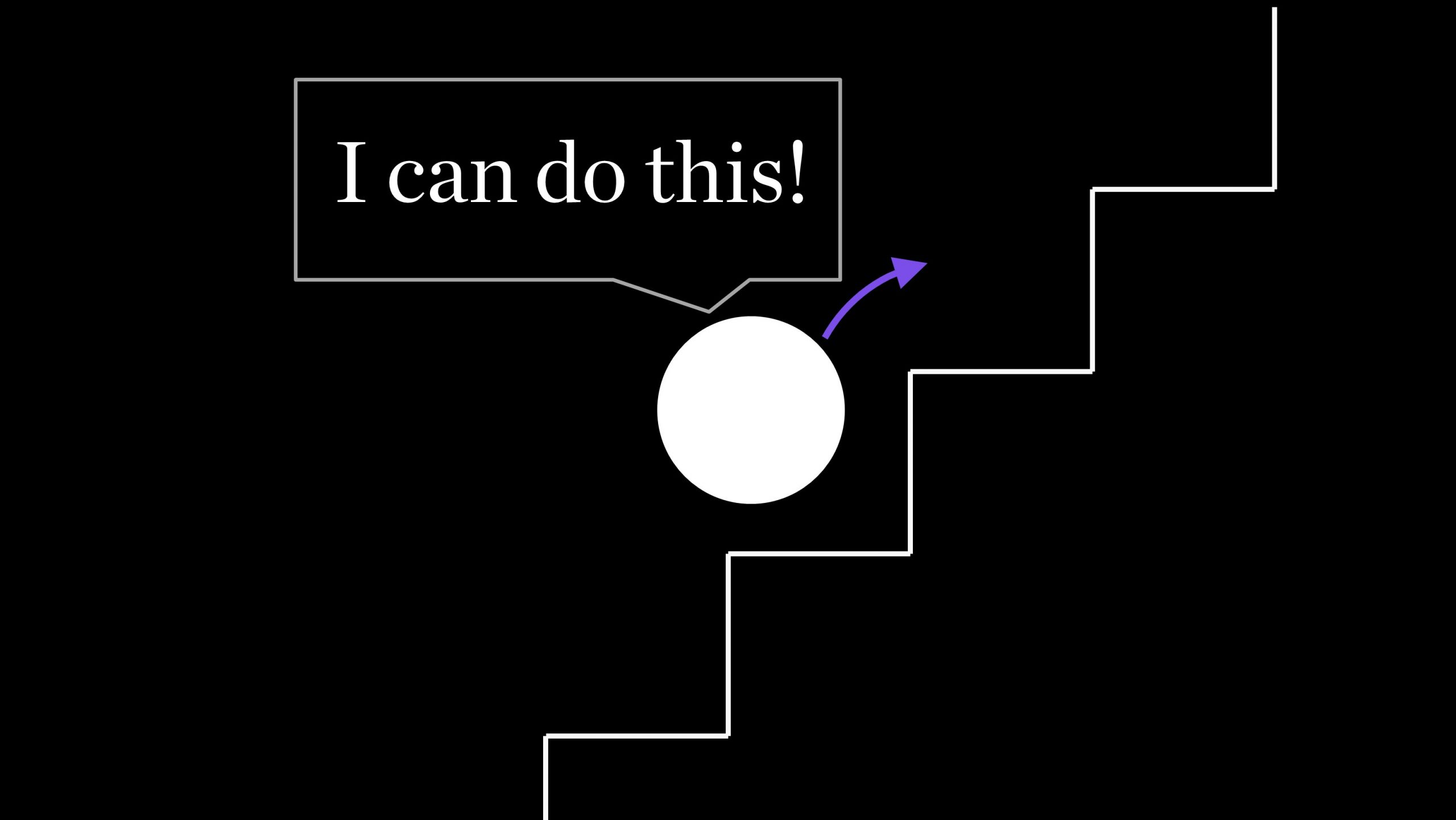
Low self-assurance and negative self-talk can become a self-fulfilling prophesy.
Encouraging you to postpone in instances where you could have otherwise completed your task on time.
As a result, you may end up feeling more stressed and less able to cope with other problems.
If you are experiencing this problem, try to increase your confidence in yourself. You should do so by taking small steps toward achieving your goal.
Depression
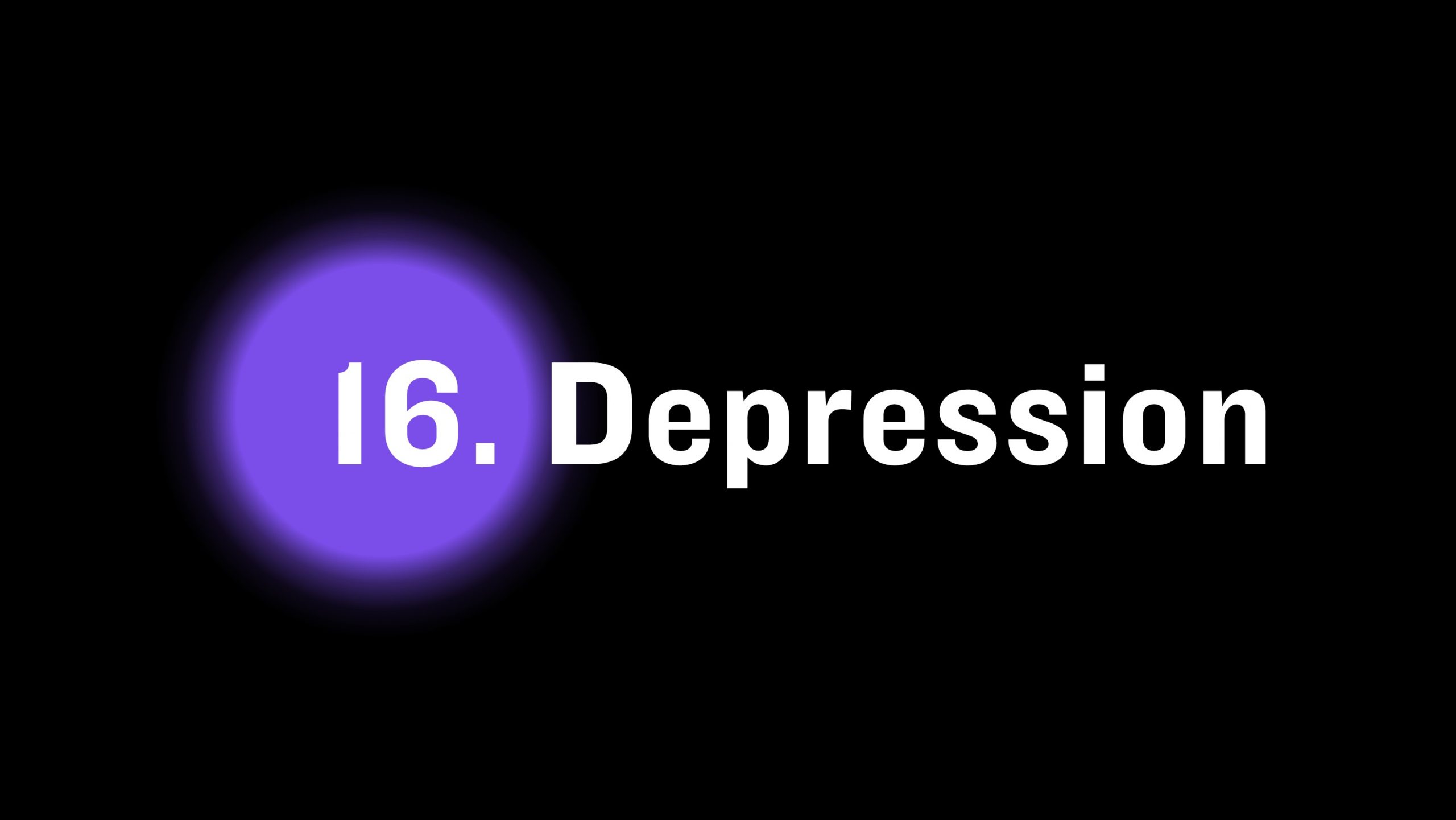
Depression can be a huge contributing negative factor in procrastination.
Depression can cause exhaustion, trouble focusing, and a lack of enthusiasm for tasks, all of which can contribute to procrastination.
It is common for people suffering from depression to put off tasks like cleaning their rooms or going grocery shopping because they lack mental stamina.
They may also be unable to focus on the single task at hand.
For a depressed person, it’s easy to feel overwhelmed by the situation and to lose hope that things will get better.
This makes it difficult to take action toward any goal.
If you are feeling down, try to identify what might be causing your mood.
If you have been working hard but haven’t seen much meaningful progress, this could be a sign of burnout.
If you find yourself avoiding certain activities because you don’t think you can do them well, it could be due to low self-esteem.
Whatever the cause, the solution is usually to change something in your life.
You can start with small changes that help you feel more optimistic and motivated.
Lack of energy
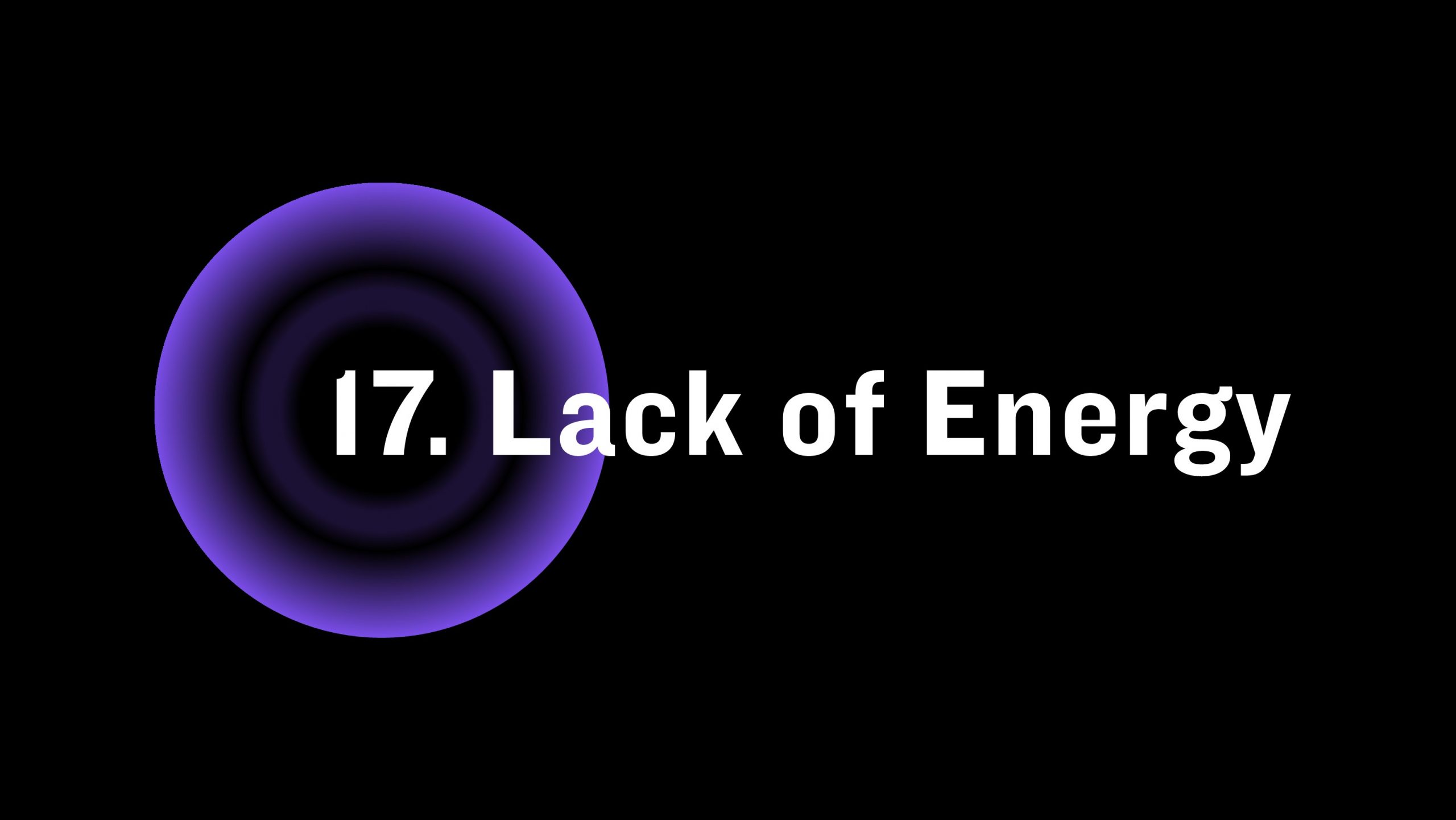
More often than not, people think they have a problem with depression when, in actuality, they just have poor amounts of physical or mental energy.
When someone is exhausted (has poor energy levels) from a long day of work, it may be more difficult for them to maintain self-control when they return home late at night.
They may find themselves falling asleep on the couch while watching TV and not even realize that they are doing this until the morning.
This is because their bodies have been running on empty all day and now they need rest.
You may feel like you need to sleep all the time. Your mind may become foggy and unfocused.
It’s important to get enough sleep so that your brain can function properly. If you don’t get enough sleep, you will likely experience fatigue, which can lead to mood swings.
Taking care of your mind and body should be your number one priority.
You need to take care of yourself so you can take care of everyone else.
Ambiguous goals

Goals that are ambiguous are more likely to lead to procrastination than those that are specific and measurable.
As an example, a vague objective like “become healthy” or “start exercising” is a good target for future procrastination because it’s difficult to measure.
A goal like “go to the gym every Monday, Wednesday, and Friday after work for at least 30 minutes on the treadmill, jogging at a fast speed” is more clear and hence more likely to result in action.
Furthermore, keep in mind that a goal’s haziness might be exacerbated by the fact that it lacks a precise description.
For instance, if you’re trying to lose weight, you might set a goal of losing 10 pounds over the next month. This goal doesn’t specify how much weight you want to lose per week, so it’s not very helpful.

If you have a task like “write a book,” then you can easily say that you’ll write one page each day, but this isn’t very useful information.
Instead, try writing down your goal as follows: “I will write 500 words today.” That way, you know exactly what you need to do, and you don’t have to worry about whether you’ve accomplished enough during the day.
Fear of negative comments or feedback

Receiving (or expecting) bad criticism can lead to long-term procrastination.
If, for example, a person is afraid of what others will think of a project they’ve worked on, they can postpone making it public.
Because the likelihood of obtaining negative feedback is minimal or the implications of that feedback aren’t as serious as they feel, many people’s anxieties in this area are excessively exaggerated or unfounded.
In certain circumstances, the dread of assessment or the fear of unfavorable criticism can motivate people to do their tasks in a timely manner, thus making them less inclined to procrastinate.
A person’s level of anxiety about the approaching evaluation and their confidence in their ability to do the work at hand are two elements that might influence the impact of this worry.
The more anxious you are about something, the harder it becomes to perform well.
This is particularly true when you’re under pressure.
You may be able to overcome your fears if you have the right mindset.
For instance, if you know that you’ll receive positive feedback from someone who has nothing to gain by giving you a compliment, then you won’t need to worry so much about how you’ll react to criticism.
On the other hand, if you don’t believe that you deserve good things, you may find yourself worrying about whether you’ll get good feedback.
Impulsivity
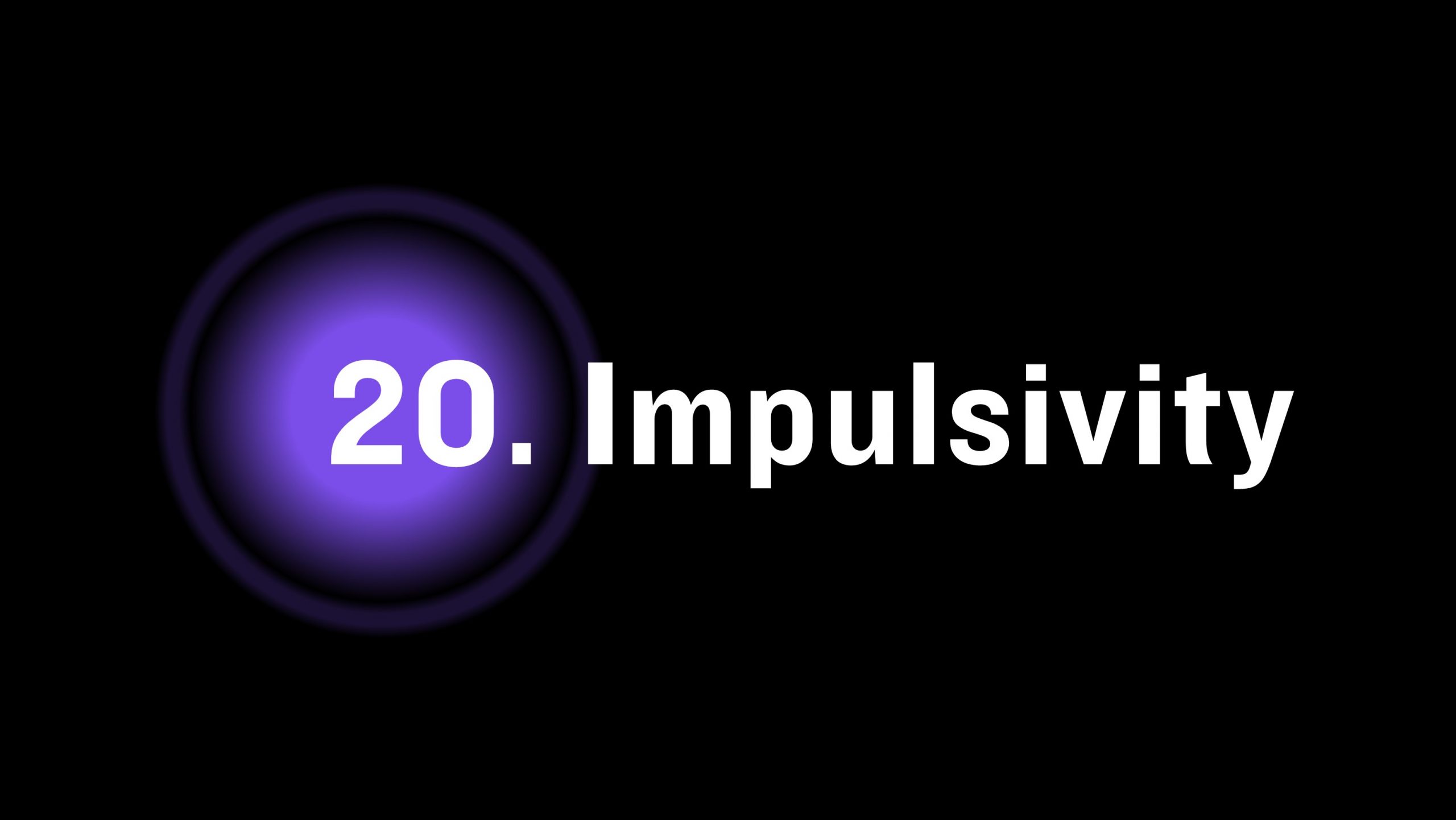
An impulsive person is someone who acts without thinking about the implications of their actions.
In many cases, procrastination is the result of impulsive behavior, such as ignoring the long-term ramifications of one’s actions or failing to prepare ahead of time.
Impulsivity is highly linked to procrastination.
Even if the project is due soon and they need to concentrate on it now if they want to turn it in on time, an impulsive person can wind up delaying it by suddenly deciding to go out with friends.
This is because they are not able to think through the consequences of their actions before acting.
There are two types of impulsiveness:
- Uncontrolled Impulsivity. This type of impulsivity occurs when a person is unable to control his or her impulses. He/she does things that he/she doesn’t really want to do but can’t help doing them.
- Controlled Impulsivity. This occurs when a person has some control over his or her impulses. For example, a student might be more likely to study for a test than have fun with friends.
You can also use the following questions to determine whether you are impulsive:
Do you often make snap decisions?
Do you act on your feelings rather than your judgment?
If you answered yes, you should try to learn how to control your impulses.
Anxiety
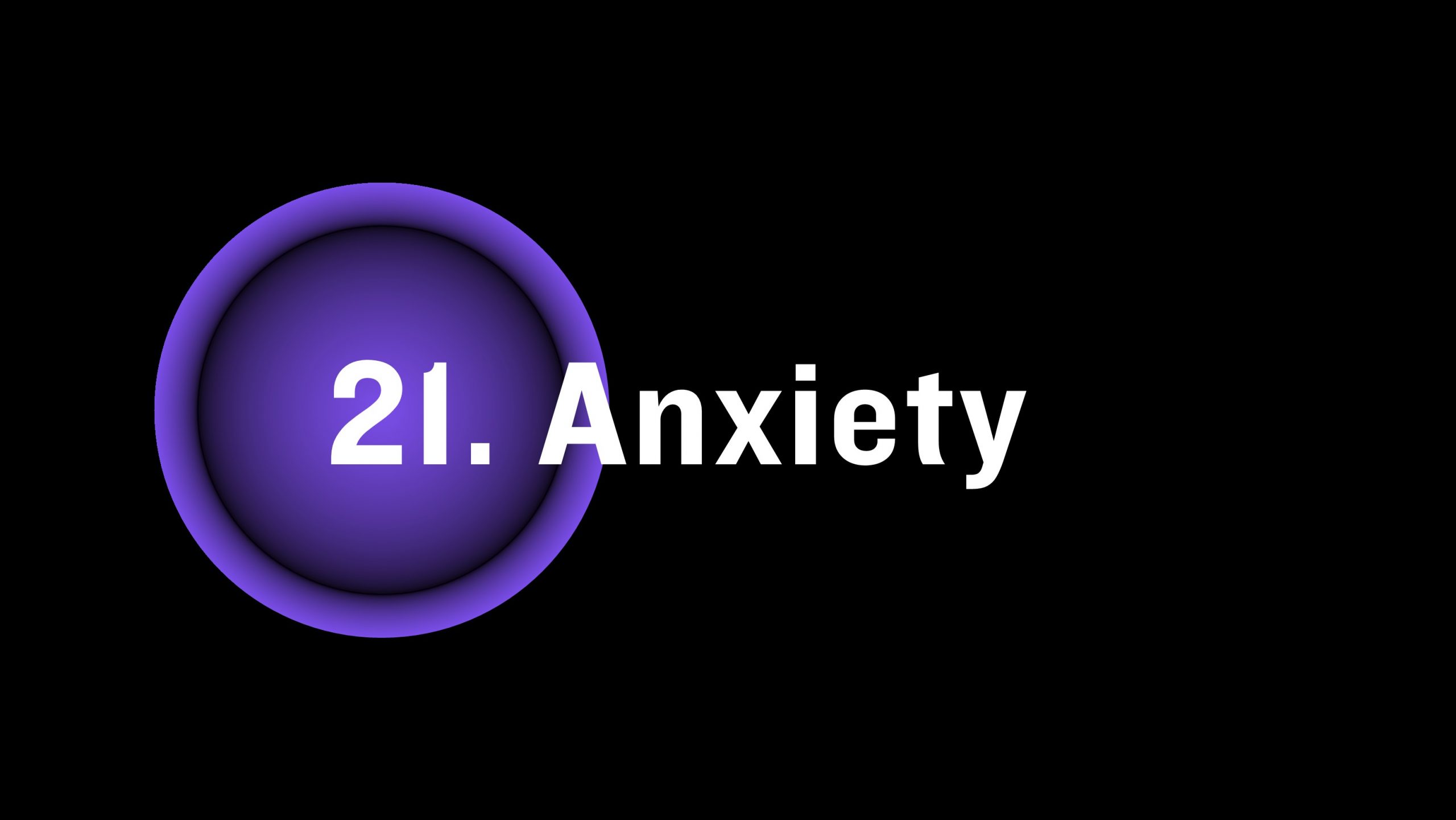
There are occasions when someone procrastinates due to anxiety over a task they need to do.
If a person’s anxiety rises as a result of their procrastination, this can lead to a feedback loop where they postpone instead of completing a task, which makes them even more nervous, and so on.
In such cases, it is important for people to identify what they are anxious about, and then take action to address those concerns.
It is also helpful to remember that procrastinating does not necessarily mean you will never achieve your goal.
Sometimes we become stuck in our own ways of thinking or behaving because we have been conditioned by society and/or previous experiences.
We may be unable to think outside of these patterns, but if we can recognize them, we can begin to change our behavior.
Being distracted
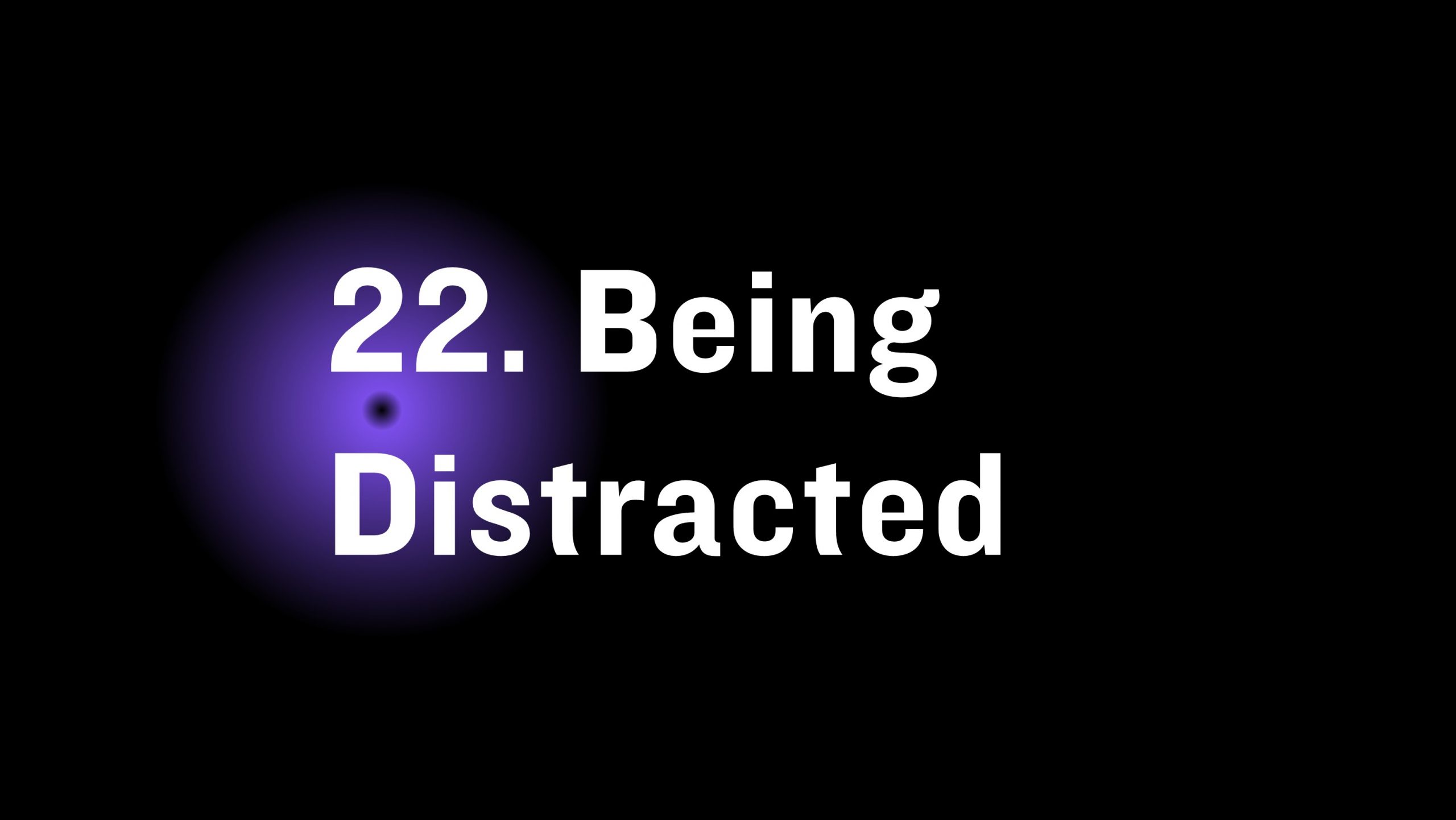
Being distracted all the time might increase the likelihood of procrastination. Usually, this is when people are continually shifting their focus from one object to another.
If you’re working on something important and your phone keeps beeping with alerts, you can find yourself procrastinating.
The same may be said for someone who keeps being sidetracked by fresh and intriguing ideas while working on several tasks they’ve started.
In both cases, it’s not that you don’t have enough to do; it’s just that you’re not doing what you should be doing.
In addition, if you’re constantly switching your attention between different things, you won’t get much done at any given moment.
I like to call this a focus death by thousand cuts.

This is why it’s so important to know how to manage distractions.
You need to learn how to keep them at bay and focus on only one thing at a time.
A myth of a better future

It’s common for people to put off taking action in the present in the hopes of pursuing a more rewarding path in the future.
I call this a myth of a better future.
It is different from disconnected future self cause, because here people expect the situations in future to be more convenient or better.
Because of this attitude, people procrastinate a lot! They get stuck in a rut and never seem to move forward.
The only way to make progress is by taking small steps every day. If you don’t do anything today, then nothing will happen tomorrow.
Stop thinking about the future. Instead, think about the present. What are you currently working on? How could you improve it?
You can’t wait until you have enough money or enough time before you take action.
You need to be focused on your current situation and how you can improve it.
Start with one small thing.
It doesn’t matter whether it’s big or small.
Just pick something and try to complete it within the next 24 hours.
This will give you momentum and keep you motivated.
Attention deficit hyperactivity disorder (ADHD)
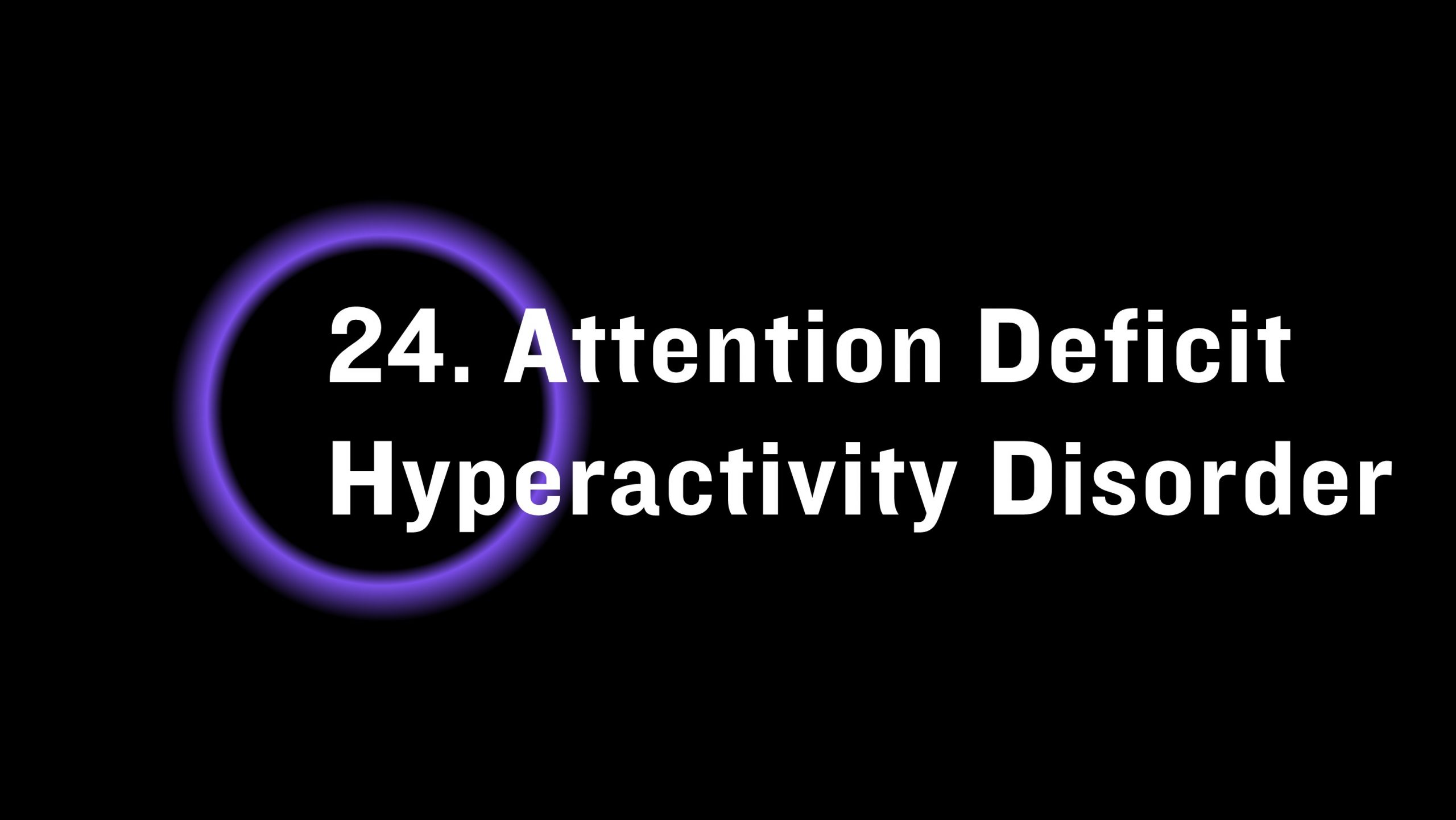
People with ADHD may procrastinate because they find it difficult to focus on one activity for extended periods of time, especially when it becomes tedious.
Therefore, they frequently switch between many projects without ever finishing any of them.
According to studies, there is a strong association between procrastination and ADHD-related behaviors in general.
This is expected since procrastination is linked to numerous ADHD behaviors and because procrastination can be seen as an indication of ADHD in some cases.
What’s more, the two are often associated with each other.
In fact, there have been several studies showing that people who have ADHD tend to procrastinate more than those without ADHD.
Lack of motivation
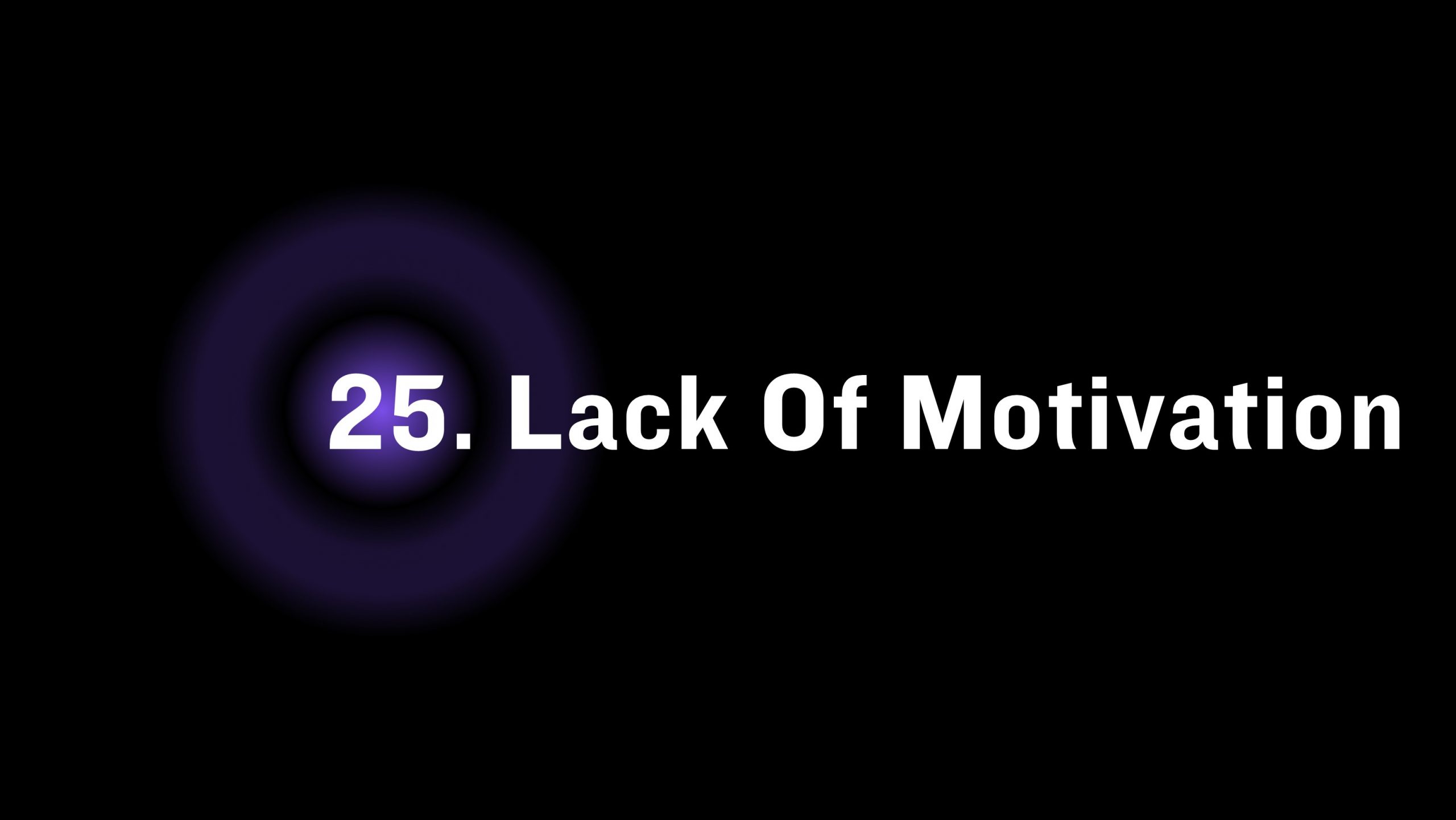
Motivation is the force that drives us to achieve our goals. It’s also the reason we fail to reach those goals.
Extrinsic, rather than intrinsic, motivation might be more of a problem.
For example, a student who is being forced by their parents to succeed in school may not be motivated by intrinsic motivation, but rather by extrinsic pressure.
People might be demotivated for a variety of reasons, including a lack of interest in the activity at hand.
Among other reasons, some people are uninspired because they don’t value the reward for completing a task or because they see a gap between the job and the reward.
Also keep in mind that people have varied levels of accomplishment motivation, which implies that some people are more motivated than others to accomplish their goals in life.
Procrastination is more common among those with low levels of achievement motivation.
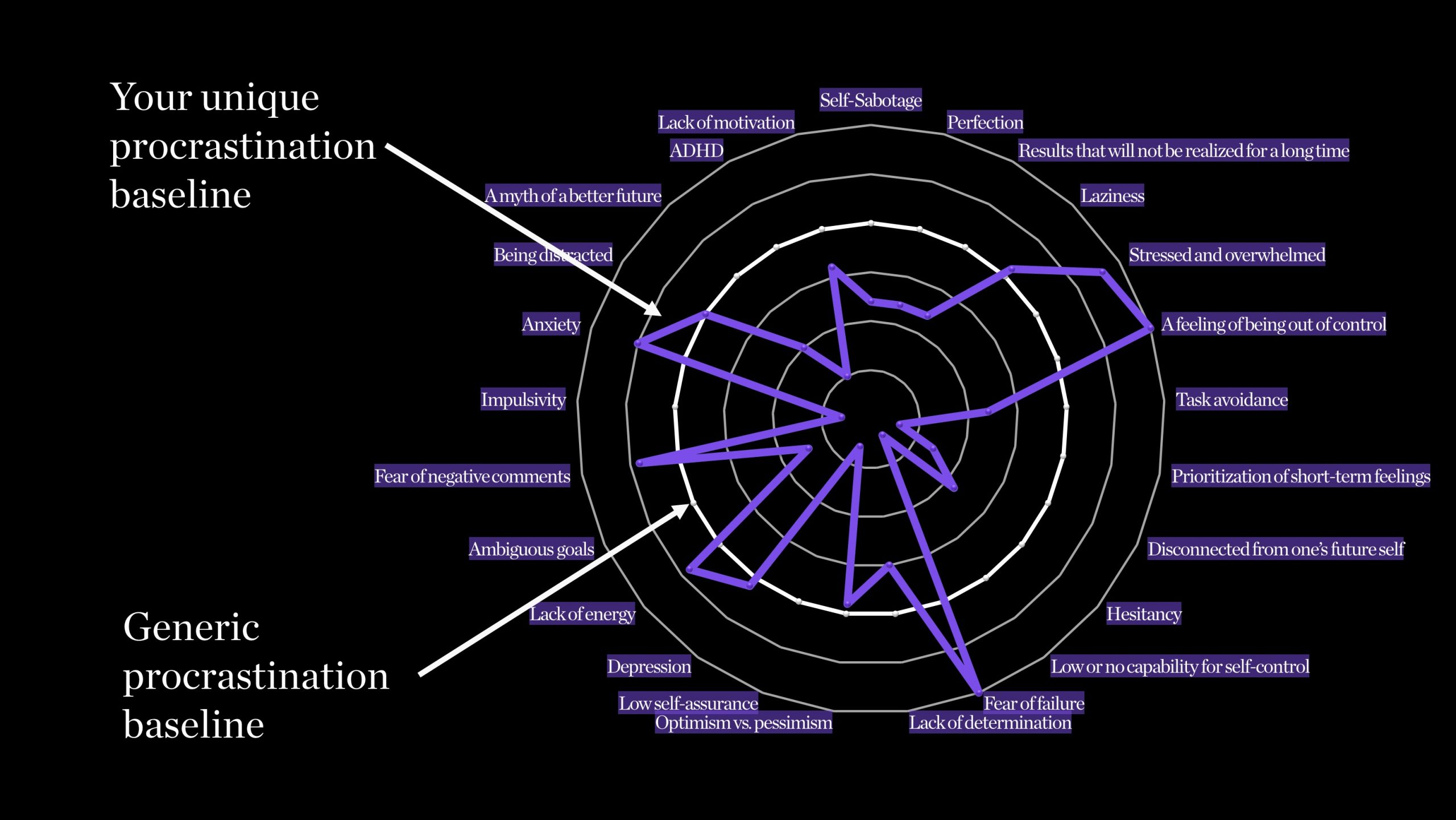
How to Stop Procrastinating
You’ve read the top 25 causes on why people procrastinate and understanding why individuals procrastinate may help you understand why you procrastinate.
Once you understand that, you can find out how to overcome your procrastination problem.
This information is helpful from a practical standpoint.
As an example, if you realize that you tend to delay because you employ abstract goals, you may ensure that you set more precise ones for yourself.
You may also split major tasks into smaller ones if you find yourself procrastinating due to the overwhelming nature of the activity.
Specifically, if you wish to overcome your procrastination, these are the major steps:
- Begin by defining your objectives and who do you want to be. Make sure that you clearly identify your goals and that they are big enough to allow you to make progress, but small enough that you can accomplish them in reality.
- The next step is to identify the specific nature of your procrastination issue and what causes you to procrastinate. This may be accomplished by recalling instances in your own life in which you were unable to complete a challenging task on time. Think about all 25 causes you have just read in this article and see which one applies to you.
- The next step is to eliminate what is pulling you down. Anti-procrastination start with eliminating what is not serving you. If you are aware that your biggest cause for procrastination is perfection, then focus on that first. Eliminate all of them one by one.
- Finally, protect your new identity by applying new daily habits. As time passes, you will form a new you. You will not have the same attitude towards things that need to be done. You will do the work. And that is built by having daily habits that build you a new identity.

Here are some examples of anti-procrastination tactics that you may use:
- Assign jobs a value depending on their importance.
- Remove any and all distractions from your work area.
- Reduce the size of a project by breaking it down into manageable chunks.
- Create a daily goal and keep track of how many days in a row you have met it.
- Your future self will thank you for what you’ve accomplished.
- Schedule your chores based on when you’re most and least productive.
- When your plan of action is successfully completed, reward yourself with a small treat.
- By committing to merely working on a task for a few minutes, you can get started on it.
- It’s better to accept that your work will contain defects rather than strive for perfection.
- To get to your ultimate objectives, you need to set up a series of deadlines along the route.
- Encourage yourself to have faith in your own abilities to conquer your procrastination.
- Instead of obsessing about the things you need to get done, keep your sights set on the bigger picture.
If you’d think you need more clarity, you can check out my services here.
Procrastination is a common problem for many people, and eliminating it a huge leap of personal achievement.
Common Questions About Procrastination
Here are some common questions about procrastination that I haven’t covered in the article.
What causes chronic procrastination?
The cause of chronic procrastination is a combination of factors.
Chronic procrastinators are not lazy, but they have difficulty with self-control.
They tend to be perfectionists who want things to go their way.
Chronic procrastinators often feel guilty about what they have not accomplished.
Their lives may appear chaotic because they are unable to keep up with all of the tasks that must be completed.
One factor is that the person has an illness, such as depression or anxiety disorder, which makes it difficult to concentrate and complete tasks on time.
Another factor is that the person may have difficulty with self-control, meaning they lack the ability to stop doing something even when they know it’s not good for them.
A third factor is that the person might be working in a job where their work is boring and uninteresting. In this case, the person will need to find another job that is more interesting and stimulating.
How is chronic procrastination diagnosed?
Chronic procrastination is diagnosed when the patient has been suffering from this condition for at least 6 months. The diagnosis of chronic procrastination includes three criteria: a significant delay in starting or completing tasks, persistent failure to complete tasks despite repeated attempts, and distress associated with these failures.
How is a chronic procrastinator treated?
There is no “cure” for chronic procrastination. However, there are ways to help people cope with it.
Treatment includes psychotherapy, medication, and lifestyle changes.
Cognitive behavioral therapy helps patients understand why they procrastinate and how to change their behavior. It teaches them to become more aware of the negative consequences of procrastinating.
Medication can be used to treat depression or anxiety that may be causing procrastination.
Lifestyle changes include setting up a regular schedule, getting enough sleep, eating well, exercising regularly, and managing stress.
Is procrastination a disease?
Procrastination is one of the most common and problematic habits in our society.
It has been associated with many negative consequences, such as stress, anxiety, depression, low self-esteem, poor academic performance, and even suicide.
However, it is not clear whether procrastination should be considered a disorder or simply a maladaptive behavior.
Procrastination can be cured by a simple technique that involves asking yourself, “What’s the worst thing that could happen?”
The answer to this question will usually lead you to an action that needs to be taken.
When is procrastination a good thing?
Procrastination can be a good thing when it’s used to delay immediate gratification for the benefit of future rewards. Sometimes it is good to take a step back and reflect on possible choices.
Is procrastination a weakness?
In most cases, it is because it is a sign of avoiding doing the important tasks.
However, there are situations where procrastination allows us to see a broader perspective of the long-term outcome.
For example, if you have been working on a project for a while and then suddenly find yourself in a situation where you need to make a decision about whether or not to continue with that project, this can be an opportunity to step back and think about what you really want from your life.
It’s also possible to use procrastination as a way of giving yourself time to reflect on how you feel about something without having to take action immediately.
So, procrastination isn’t always bad-sometimes it’s good!
Conclusion
You may postpone for whatever reason you choose; it’s not just one or two reasons.
You can benefit from understanding why individuals postpone because it can help you identify the root cause of your own procrastination, which in turn can help you find a solution.
Main takeaways
- In order to get things done in a timely manner, we must rely mostly on self-control, but our desire to be recognized for our efforts may give us a beneficial boost.
- These demotivating elements, such as worry, fear of failure, perfectionism, and work aversion, all have the opposite impact on our drive, making us more prone to postponement.
- Even more importantly, there are a number of elements that directly affect our self-control and motivation, which makes us more prone to procrastination. These include, for example, abstract objectives, goals that are long-term, and a lack of connection between our current and future selves.
- There are times when we procrastinate forever, or until a shift in the balance of our self-control and drive occurs that allows us to finally get things done.
- Other causes, such as self-sabotage, might also cause us to put off completing a task.

